Find Help
More Items From Ergsy search
-
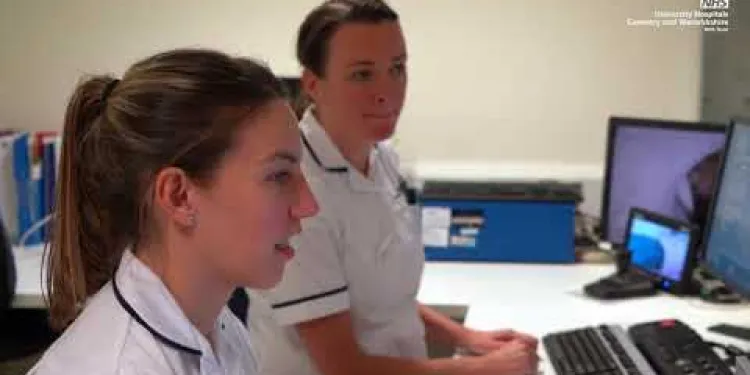
Radiotherapy Services at University Hospital
Relevance: 100%
-
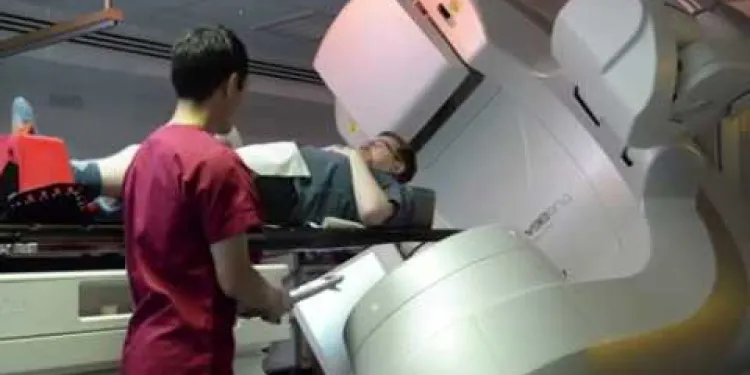
A Radiotherapy appointment in east and North Hertfordshire
Relevance: 43%
-
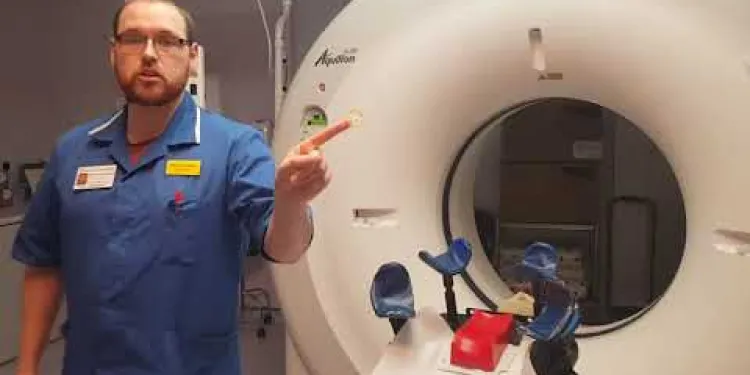
Radiotherapy CT scanner
Relevance: 41%
-
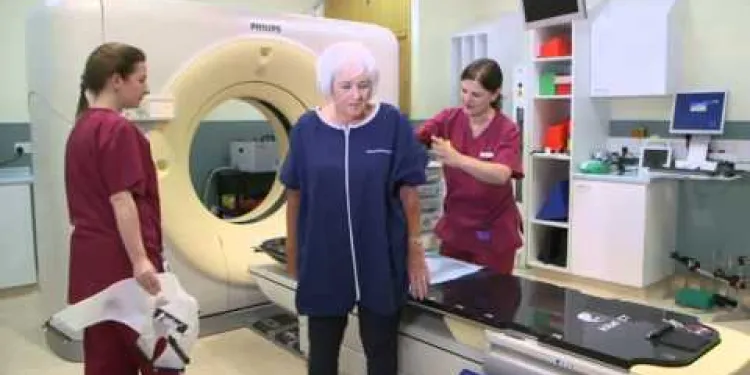
Radiotherapy to the Head and Neck: A Guide for patients and their carers
Relevance: 41%
-
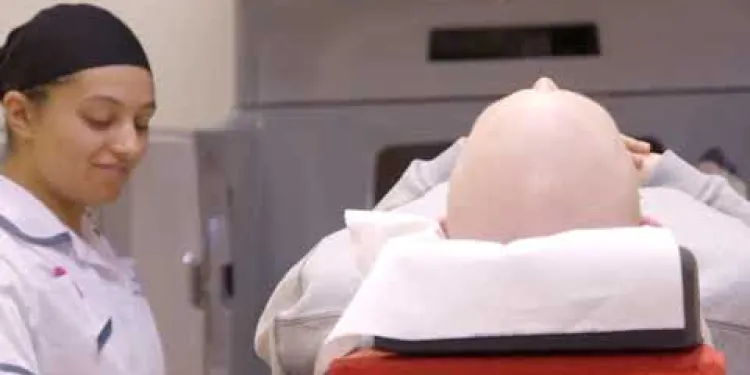
What is Radiotherapy, and its use in treatment for cancers?
Relevance: 40%
-
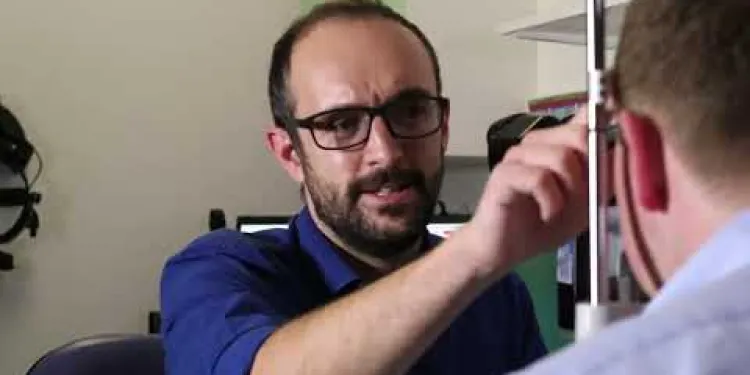
Glaucoma: about the Ophthalmology Team at University Hospitals Birmingham NHS Foundation Trust
Relevance: 40%
-
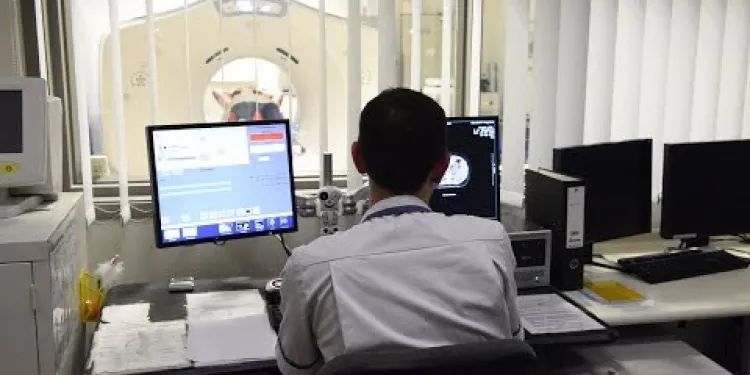
Having radiotherapy for breast cancer - 3 Videos
Relevance: 40%
-
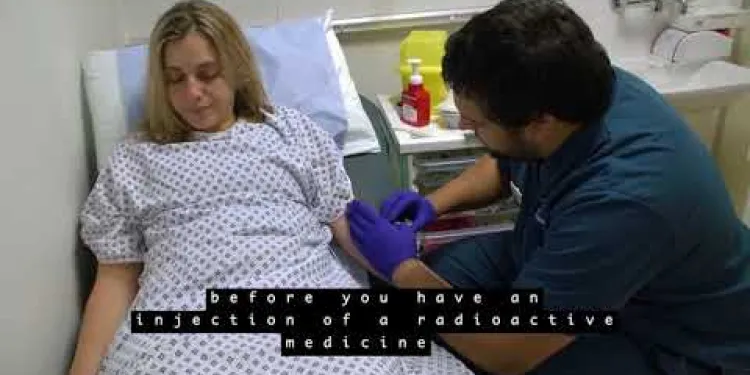
Your PET/CT scan at University College Hospital
Relevance: 39%
-
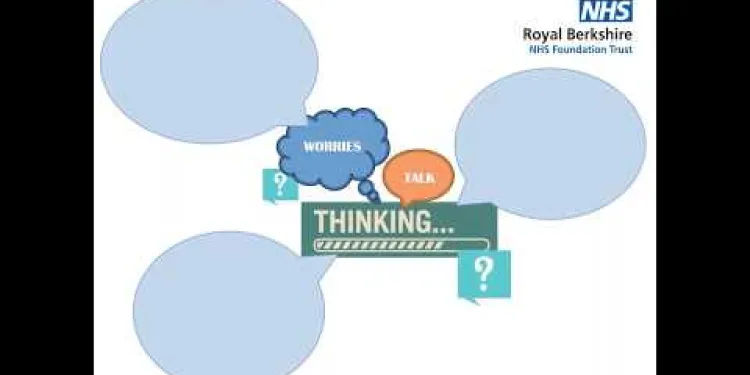
Royal Berkshire NHS Foundation Trust: Radiotherapy for head and neck cancers
Relevance: 38%
-
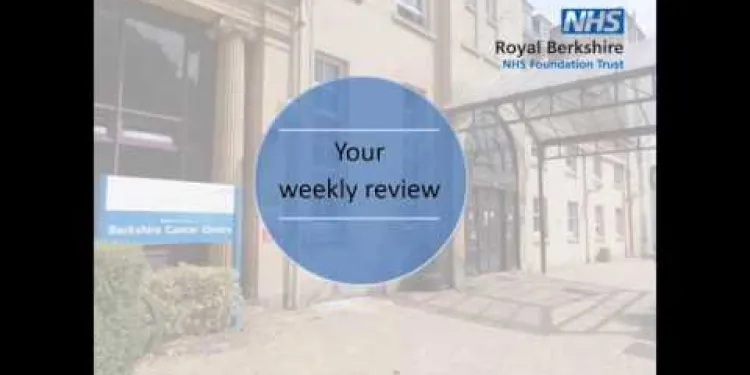
Royal Berkshire NHS Foundation Trust: Radiotherapy for prostate cancer
Relevance: 37%
-

Undergoing day case surgery at University Hospitals Bristol
Relevance: 37%
-
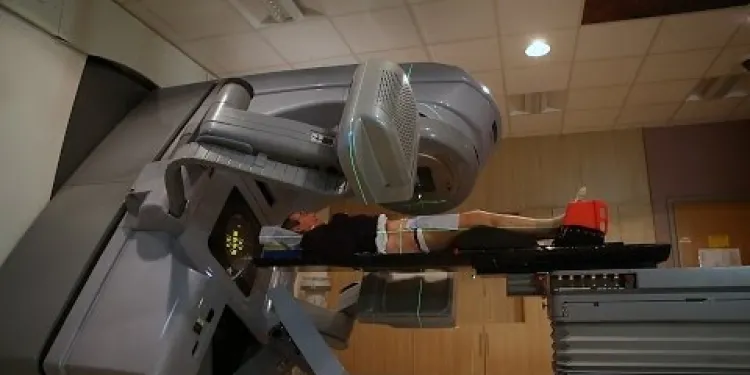
What is it like having Prostate Radiotherapy treatment?
Relevance: 36%
-
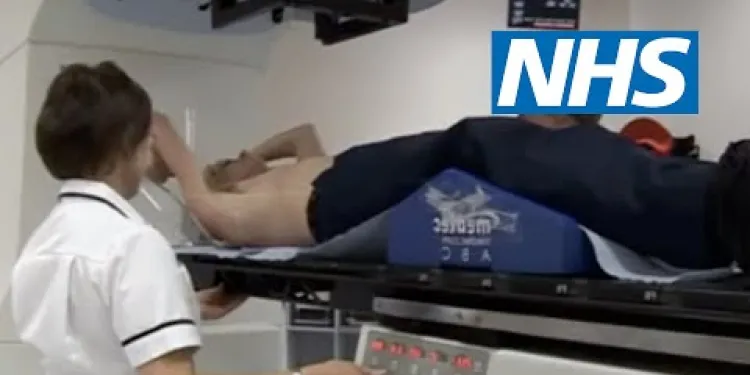
Cancer treatment: what happens during radiotherapy? | NHS
Relevance: 36%
-

Applying For Universal Credit
Relevance: 32%
-

What is the Universal Credit helpline number?
Relevance: 32%
-

What is Universal Credit in the UK?
Relevance: 31%
-

Can Universal Credit be stopped or sanctioned?
Relevance: 31%
-

How is Universal Credit paid?
Relevance: 30%
-

Will language barriers be an issue in EU hospitals?
Relevance: 30%
-

How is the Universal Credit amount calculated?
Relevance: 29%
-

How can I apply for Universal Credit?
Relevance: 28%
-

Can I apply for Universal Credit if I am self-employed?
Relevance: 28%
-

Who can apply for Universal Credit?
Relevance: 28%
-

What if I disagree with a Universal Credit decision?
Relevance: 28%
-

Does Universal Credit cover childcare costs?
Relevance: 28%
-

Are there any deductions from Universal Credit?
Relevance: 28%
-

Can I shorten my waiting time by choosing a different hospital?
Relevance: 27%
-

Does the NHS offer an online hospital for menopause?
Relevance: 26%
-
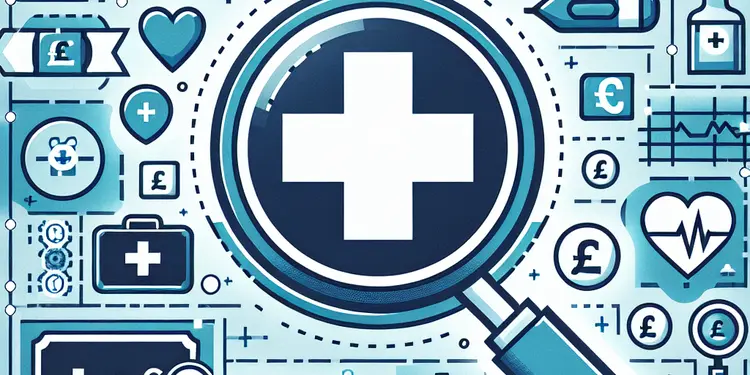
How do I find a suitable hospital or clinic for my treatment?
Relevance: 26%
-

How long does it take to receive the first Universal Credit payment?
Relevance: 26%
-

Does the NHS offer an online hospital for prostate cancer?
Relevance: 26%
-

Can you receive Universal Credit if you are in full-time education?
Relevance: 25%
-

What documents are required to apply for Universal Credit?
Relevance: 25%
-
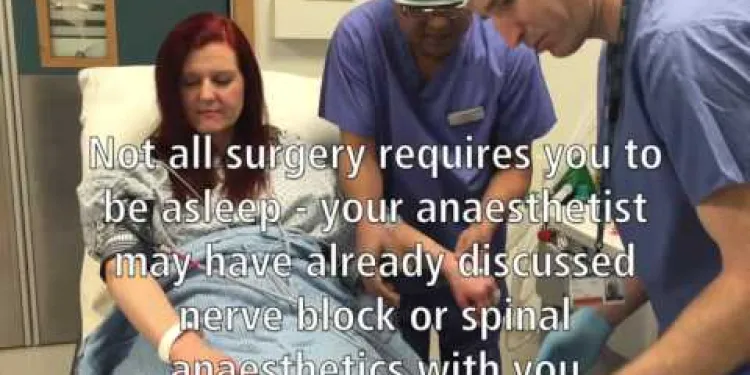
Your Operation at East Surrey Hospital
Relevance: 25%
-

Does the NHS offer an online hospital for prostate cancer?
Relevance: 25%
-
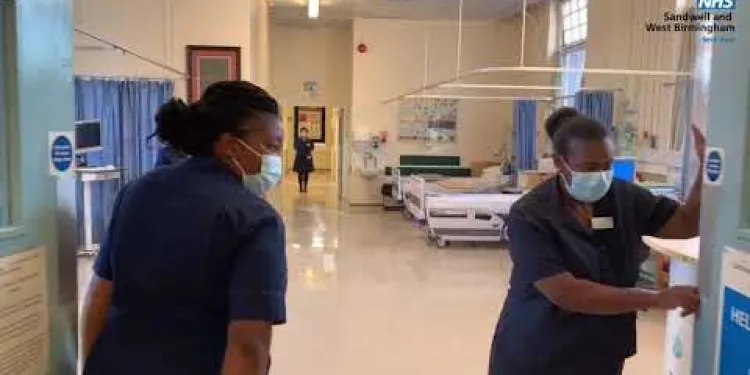
Tour of the Sickle Cell and Thalassaemia Unit at City Hospital | SCaT
Relevance: 25%
-

Government Announces Increase in Universal Credit Payments Ahead of Winter
Relevance: 25%
-
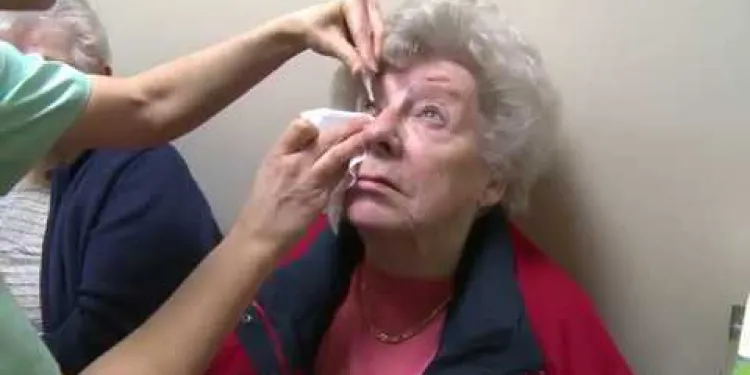
Eye Injections at Royal Bournemouth Hospital
Relevance: 25%
-

Do private hospitals have shorter waiting times for operations?
Relevance: 24%
-

Are waiting times for operations the same across all hospitals?
Relevance: 24%
University Hospitals in the UK
The term "university hospital" in the UK refers to hospitals that are affiliated with universities. These hospitals are often teaching hospitals where medical students, nurses, and other healthcare professionals receive their training. University hospitals are known for their high-quality medical care, research, and cutting-edge medical technology.
Some well-known university hospitals in the UK include:
- St Thomas' Hospital - Located in London, it is part of King's College London and is renowned for its medical research and clinical services.
- Addenbrooke's Hospital - Affiliated with the University of Cambridge, it is a major teaching hospital located in Cambridge, England.
- Royal Infirmary of Edinburgh - Associated with the University of Edinburgh, this hospital serves as a teaching and research center in Scotland.
- Manchester Royal Infirmary - Connected to the University of Manchester, it is one of the largest teaching hospitals in the UK.
- Queen's Medical Centre - Part of the University of Nottingham, this hospital is a prominent healthcare and research institution.
- John Radcliffe Hospital - Affiliated with the University of Oxford, it is a leading teaching hospital in Oxford, England.
These are just a few examples, and there are many other university hospitals throughout the UK, each with its own areas of expertise and specialties. These hospitals play a vital role in medical education, research, and healthcare delivery in the United Kingdom.
Radiotherapy Services at University Hospital
Introduction to Radiotherapy
Radiotherapy is a crucial treatment modality used in the management of cancer patients. At University Hospital, we provide state-of-the-art radiotherapy services aimed at delivering precise treatment while minimizing potential side effects. Our radiotherapy department is equipped with advanced technology and staffed by a dedicated team of professionals committed to offering the highest standard of care.Advanced Technology and Techniques
University Hospital employs the latest radiotherapy technology to ensure effective and safe cancer treatment. Our facilities include sophisticated linear accelerators, allowing for precision targeting of cancerous cells. We also utilize advanced techniques such as Intensity-Modulated Radiotherapy (IMRT) and Image-Guided Radiotherapy (IGRT), which enable high-dose radiation delivery with minimal impact on surrounding healthy tissues.Comprehensive Patient Care
Our approach to radiotherapy is patient-centered, ensuring that each patient receives a tailored treatment plan. From initial consultation through to post-treatment follow-up, our multidisciplinary team, including oncologists, radiographers, physicists, and nurses, collaborates to provide comprehensive care. Emphasis is placed on patient education and support throughout the treatment journey, ensuring patients feel informed and comfortable.Research and Development
University Hospital is at the forefront of radiotherapy research, continually striving to improve treatment outcomes. Our participation in clinical trials and research projects ensures that patients have access to cutting-edge therapies and innovations in cancer treatment. This commitment to research underpins our dedication to offering the best possible care to our patients.Accessibility and Support
We understand that undergoing radiotherapy can be a stressful experience, and we are dedicated to making treatment as accessible and supportive as possible. University Hospital provides comprehensive support services, including psychological counseling, nutritional advice, and financial guidance. Additionally, our centrally located facility in the United Kingdom ensures that patients from across the region can easily access our services.Conclusion
Radiotherapy at University Hospital is characterized by advanced technology, a patient-centered approach, and a commitment to research and continuous improvement. Our dedicated team works tirelessly to ensure patients receive the most effective treatment in a supportive and compassionate environment. If you or a loved one is in need of radiotherapy services, University Hospital is here to provide expert care every step of the way. This HTML content provides a comprehensive overview of the radiotherapy services available at University Hospital, addressing key aspects from technology and patient care to research and accessibility, tailored for readers in the United Kingdom.University Hospitals in the UK
University hospitals in the UK work with universities. These hospitals help train students who want to be doctors and nurses. University hospitals are known for being very good at medical care. They are also important for medical research and have the latest technology.
Some well-known university hospitals in the UK include:
- St Thomas' Hospital - This hospital is in London. It works with King's College London. It is famous for medical research and great healthcare.
- Addenbrooke's Hospital - This hospital is in Cambridge. It is linked to the University of Cambridge. Addenbrooke's is a big teaching hospital.
- Royal Infirmary of Edinburgh - This hospital is in Edinburgh, Scotland. It is part of the University of Edinburgh. It is a place for teaching and research.
- Manchester Royal Infirmary - Situated in Manchester, it works with the University of Manchester. It is one of the largest teaching hospitals in the UK.
- Queen's Medical Centre - Located in Nottingham, this hospital is linked to the University of Nottingham. It is known for healthcare and research.
- John Radcliffe Hospital - It is in Oxford and works with the University of Oxford. This hospital is a leading teaching hospital.
These are some examples, but there are more university hospitals in the UK. Each one is special and has different expert areas. University hospitals are very important for teaching new medical staff and helping patients in the UK.
Radiotherapy Services at University Hospital
Introduction to Radiotherapy
Radiotherapy is a way to treat cancer with strong rays. At University Hospital, we use the best machines to make sure the treatment works well with fewer side effects. Our team is skilled and cares a lot about helping you get better.Advanced Technology and Techniques
At University Hospital, we use the newest machines to treat cancer safely. Our machines target cancer cells carefully so healthy cells stay safe. We use special techniques like Intensity-Modulated Radiotherapy and Image-Guided Radiotherapy to focus the strong rays only where they are needed.Comprehensive Patient Care
We make sure each person gets the right plan just for them. From start to finish, our team works together to help. This team includes doctors, nurses, and other experts. We explain everything and give support so you feel good about your care.Research and Development
We always look for new ways to make radiotherapy better. We do research and take part in special studies to help find new treatments. This helps us give you the best care available.Accessibility and Support
We know radiotherapy can be scary. We try to make it easier for you. We have people who can talk to you if you’re worried, help you eat well, and manage money worries. Our hospital is easy to get to, so you can come from different places.Conclusion
Radiotherapy at University Hospital uses the best machines and a caring team to help you. We keep trying to make things better for you. If you need radiotherapy, we are here to help you feel better and give you support every step of the way. This information tells you about how we can help with radiotherapy at University Hospital. We have good machines, personal care, and we’re always learning new things to help you. We are ready to help people in the United Kingdom.Frequently Asked Questions
What is radiotherapy?
Radiotherapy is a treatment that uses high doses of radiation to kill cancer cells and shrink tumors. It can be used before surgery to shrink a tumor or after surgery to kill any remaining cancer cells.
Do I need an appointment for radiotherapy consultation?
Yes, you will need to book an appointment for a consultation with your oncologist to discuss if radiotherapy is the best treatment option for you.
How do I prepare for my radiotherapy sessions?
Your healthcare team will provide specific instructions, but generally, it's important to follow any dietary recommendations and arrive on time. You may also need to undergo a planning CT scan to help tailor the treatment to your exact needs.
How long does a radiotherapy session last?
A typical radiotherapy session lasts about 10 to 30 minutes, although the preparation time can make the overall appointment slightly longer.
Is radiotherapy painful?
No, the radiotherapy itself is not painful. However, the side effects of treatment, which can develop over time, might cause discomfort.
What are the common side effects of radiotherapy?
Common side effects include fatigue, skin irritation in the treated area, and possible localized side effects depending on the treatment site, like nausea if the abdomen is treated.
Can I continue working during radiotherapy?
Many people are able to continue working during their treatment, although you may need to adjust your schedule or take some time off depending on how you feel.
Will I lose my hair during radiotherapy?
Hair loss is usually localized to the area being treated. For example, radiotherapy to the head may result in hair loss on your scalp.
Can I drive myself to and from the radiotherapy sessions?
If you feel well, you can drive yourself. However, some patients prefer to have someone accompany them, especially if experiencing side effects.
Is radiotherapy covered by the NHS?
Yes, radiotherapy is covered by the NHS in the UK, so you should not have to pay for this treatment.
How often do I need radiotherapy sessions?
The frequency of radiotherapy sessions depends on the type and stage of the cancer, usually ranging from daily sessions five days a week for several weeks.
Will radiotherapy affect my fertility?
Radiotherapy in the pelvic area can affect fertility. It's important to discuss fertility preservation options with your healthcare team before starting treatment.
Can I eat and drink before my radiotherapy session?
Generally, you can eat and drink as normal, but your doctor may give you specific instructions based on your treatment plan.
Are there any long-term side effects of radiotherapy?
Some patients may experience long-term side effects, such as changes in skin texture, secondary cancers, or issues related to the treated body part. Your oncologist will discuss these risks with you.
What support services are available during radiotherapy treatment?
University Hospital offers various support services, including counseling, nutritional advice, and support groups for patients undergoing radiotherapy.
What is radiotherapy?
Radiotherapy is a way to treat cancer. It uses strong rays, like X-rays, to kill cancer cells. Doctors use special machines to do this. Radiotherapy helps make the cancer smaller and stop it from growing.
If you find this hard to read, you can ask someone to read it out loud with you. Or, you can use tools that read the text for you on a computer or tablet.
Radiotherapy is a way to treat cancer. It uses strong rays to kill cancer cells. It can also make lumps smaller. Doctors might use it before an operation to make the lump smaller. They might use it after an operation to make sure no cancer is left.
Do I need to book a time to see the doctor for radiotherapy?
You need to book a time to see the doctor for radiotherapy. This is called an appointment.
If you need help to book, you can:
- Ask a family member or friend to help.
- Contact the hospital, and they can help you.
- Use a calendar to remember your appointment.
Yes, you need to make an appointment to talk to your cancer doctor. You will discuss if radiotherapy is good for you.
Getting Ready for Your Radiotherapy Sessions
Here is how you can get ready for your radiotherapy:
- Wear Comfortable Clothes: Put on soft and easy clothes before you go. This helps you feel nice and relaxed.
- Bring a Friend: Ask a friend or family member to go with you. They can support you and keep you company.
- Ask Your Doctor: Talk to your doctor if you have questions. It is okay to ask anything you are unsure about.
- Use Relaxation Techniques: Try to practice deep breathing or listen to calming music. This can help you feel calm.
- Follow Instructions: Follow what your doctor tells you. This will help your treatment go smoothly.
Remember, you can always ask for help if you need it. You are not alone.
Your doctor and nurse will tell you what to do. It is important to eat the right foods they suggest and be on time for your appointments. You might also have a special scan called a CT scan. This scan helps your doctor plan the best treatment for you.
How long is a radiotherapy session?
A radiotherapy session is a short time. It usually takes about 10 to 30 minutes.
Here are some tips to help:
- Ask someone to go with you.
- Bring a book or toy to help you relax.
- Tell a nurse if you feel scared.
A radiotherapy session usually takes about 10 to 30 minutes. Getting ready might make the whole appointment a bit longer.
Does radiotherapy hurt?
No, the radiotherapy does not hurt. But it can have side effects. These side effects might make you feel uncomfortable later on.
Here are some tips to help:
- Talk to your doctor or nurse if you feel any discomfort.
- Ask for help from family or friends if you need it.
- You can use apps or tools to help remember to take medicine or go to appointments.
What happens to your body after radiotherapy?
Some things might happen that are not so nice. You might feel very tired. The skin where you get treated might feel sore. If you get treatment on your tummy, you might feel like you want to be sick.
Can I keep working while having radiotherapy?
Many people can keep working while they get treatment. You might need to change when you work or take a break if you feel sick.
Will I lose my hair during radiotherapy?
You might lose hair where the radiotherapy beam goes in. If the radiotherapy is on your head, you might lose hair there. If the treatment is on another part of your body, you might not lose the hair on your head.
Here are some ways to help:
- Ask your doctor or nurse about what might happen with your hair during treatment.
- Wear a soft hat or scarf if your head feels cold.
- Talk to friends or family about how you feel.
Hair can fall out where the treatment happens. If you have treatment on your head, you might lose hair on your head.
Can I drive to my radiotherapy sessions and back home?
It might be okay for you to drive to your treatment and home again. But, sometimes, people feel tired or unwell from radiotherapy. This can make driving hard.
Ask your doctor if it's safe for you to drive. You can also ask a friend or family member to come with you. They can help if you don't feel well afterwards.
You might want to use public transport or a taxi if driving is hard.
If you feel okay, you can drive yourself. But some people like to have a friend with them, just in case they feel sick.
Can you get radiotherapy with the NHS?
Yes, the NHS can pay for radiotherapy treatment. Radiotherapy is a way to treat cancer. If you need it, talk to your doctor. Your doctor will help you get the treatment.
If you find reading hard, you can use these tips:
- Ask someone to read with you.
- Use a ruler or your finger to follow each line.
- Take breaks to rest your eyes.
Yes, the NHS pays for radiotherapy in the UK. This means you do not have to pay for this treatment.
How many times do I need radiotherapy?
Radiotherapy is a treatment to help you get better. You may need to go for sessions more than once. Your doctor will tell you how many times to go. They will also tell you when to start and finish.
To help remember, you can:
- Write the dates in a calendar.
- Use a reminder on your phone.
- Ask someone to help you keep track.
How many radiotherapy sessions you need depends on the type and stage of cancer. Usually, it’s every day for five days a week, and this can go on for a few weeks.
If you find reading hard, you can use tools to help. Audio books or text-to-speech tools can read text out loud. You can also break down big words or sentences into smaller parts.
Can radiotherapy change my ability to have children?
Radiotherapy is a treatment for illness. It can happen in the pelvic area, which is low in your belly.
This treatment might make it hard to have babies in the future. Talk to your doctor before you start treatment. They can help you find ways to save your ability to have children later.
Using simple words can help you understand more easily. Ask your doctor to explain things clearly. You can also ask someone you trust to go with you to the doctor’s appointment. You can write down questions before you go to remember what you want to ask.
Can I eat and drink before my radiotherapy session?
Yes, you can eat and drink before your radiotherapy. It is good to have a snack or a meal. Drink some water to stay hydrated. These things can help you feel better during the session.
If you are not sure, ask your doctor or nurse for advice. They can help you understand what to eat and drink.
Try using a picture planner or a timer. These can remind you when to eat and drink before your session.
You can usually eat and drink like normal. But your doctor might tell you to do something different. This will depend on your treatment. If you are not sure, ask your doctor what is best for you.
Does radiotherapy have long-lasting side effects?
Radiotherapy is a treatment that uses strong rays to kill cancer. It is important to know if it causes any problems that last a long time.
What are side effects?
Side effects are things that happen to your body that you do not expect because of medicine or treatment.
Long-lasting side effects:
- Some people may feel tired for a long time.
- The skin where the treatment was might change color.
- There could be problems with how your organs work inside your body.
- It might affect your ability to have children.
Everyone is different, so side effects can be different for each person.
How to get help:
- Talk to your doctor or nurse about your worries. They can help you understand what might happen and how to feel better.
- Using a diary to write down how you feel each day can help you remember to tell the doctor if you notice changes.
- A friend or family member can come with you to appointments to help remember the information.
Sometimes, people might have side effects that last a long time. This can be changes in skin feel, getting another kind of cancer, or problems in the part of the body that was treated. Your cancer doctor will talk about these risks with you.
What help can you get when having radiotherapy?
If you are having radiotherapy, there are people and tools that can help you.
- Ask a nurse or doctor if you have questions. They can tell you what to expect.
- There are support groups where you can talk to other people who know how you feel.
- Sometimes, there are counsellors to help you with your feelings.
- You can use apps or websites to learn more. Ask for help to find safe ones.
It’s okay to ask for help. People are there for you.
University Hospital has different ways to help. You can talk to someone about your feelings, get advice on what to eat, and meet with others who also have radiotherapy.
Useful Links
This website offers general information and is not a substitute for professional advice.
Always seek guidance from qualified professionals.
If you have any medical concerns or need urgent help, contact a healthcare professional or emergency services immediately.
Some of this content was generated with AI assistance. We’ve done our best to keep it accurate, helpful, and human-friendly.
- Ergsy carfully checks the information in the videos we provide here.
- Videos shown by Youtube after a video has completed, have NOT been reviewed by ERGSY.
- To view, click the arrow in centre of video.
- Most of the videos you find here will have subtitles and/or closed captions available.
- You may need to turn these on, and choose your preferred language.
- Go to the video you'd like to watch.
- If closed captions (CC) are available, settings will be visible on the bottom right of the video player.
- To turn on Captions, click settings .
- To turn off Captions, click settings again.
More Items From Ergsy search
-

Radiotherapy Services at University Hospital
Relevance: 100%
-

A Radiotherapy appointment in east and North Hertfordshire
Relevance: 43%
-

Radiotherapy CT scanner
Relevance: 41%
-

Radiotherapy to the Head and Neck: A Guide for patients and their carers
Relevance: 41%
-

What is Radiotherapy, and its use in treatment for cancers?
Relevance: 40%
-

Glaucoma: about the Ophthalmology Team at University Hospitals Birmingham NHS Foundation Trust
Relevance: 40%
-

Having radiotherapy for breast cancer - 3 Videos
Relevance: 40%
-

Your PET/CT scan at University College Hospital
Relevance: 39%
-

Royal Berkshire NHS Foundation Trust: Radiotherapy for head and neck cancers
Relevance: 38%
-

Royal Berkshire NHS Foundation Trust: Radiotherapy for prostate cancer
Relevance: 37%
-

Undergoing day case surgery at University Hospitals Bristol
Relevance: 37%
-

What is it like having Prostate Radiotherapy treatment?
Relevance: 36%
-

Cancer treatment: what happens during radiotherapy? | NHS
Relevance: 36%
-

Applying For Universal Credit
Relevance: 32%
-

What is the Universal Credit helpline number?
Relevance: 32%
-

What is Universal Credit in the UK?
Relevance: 31%
-

Can Universal Credit be stopped or sanctioned?
Relevance: 31%
-

How is Universal Credit paid?
Relevance: 30%
-

Will language barriers be an issue in EU hospitals?
Relevance: 30%
-

How is the Universal Credit amount calculated?
Relevance: 29%
-

How can I apply for Universal Credit?
Relevance: 28%
-

Can I apply for Universal Credit if I am self-employed?
Relevance: 28%
-

Who can apply for Universal Credit?
Relevance: 28%
-

What if I disagree with a Universal Credit decision?
Relevance: 28%
-

Does Universal Credit cover childcare costs?
Relevance: 28%
-

Are there any deductions from Universal Credit?
Relevance: 28%
-

Can I shorten my waiting time by choosing a different hospital?
Relevance: 27%
-

Does the NHS offer an online hospital for menopause?
Relevance: 26%
-

How do I find a suitable hospital or clinic for my treatment?
Relevance: 26%
-

How long does it take to receive the first Universal Credit payment?
Relevance: 26%
-

Does the NHS offer an online hospital for prostate cancer?
Relevance: 26%
-

Can you receive Universal Credit if you are in full-time education?
Relevance: 25%
-

What documents are required to apply for Universal Credit?
Relevance: 25%
-

Your Operation at East Surrey Hospital
Relevance: 25%
-

Does the NHS offer an online hospital for prostate cancer?
Relevance: 25%
-

Tour of the Sickle Cell and Thalassaemia Unit at City Hospital | SCaT
Relevance: 25%
-

Government Announces Increase in Universal Credit Payments Ahead of Winter
Relevance: 25%
-

Eye Injections at Royal Bournemouth Hospital
Relevance: 25%
-

Do private hospitals have shorter waiting times for operations?
Relevance: 24%
-

Are waiting times for operations the same across all hospitals?
Relevance: 24%


